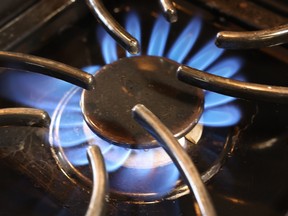Opinion: North American mothers are now broadly aware of indoor pollutants they emit, and we believe many will change how they choose to cook.

Article content
Green zealots. Well-funded environmental warriors.
Advertisement 2
Article content
These were just two of the alarmist phrases used to describe us — mothers whose work revolves around safeguarding the health and well-being of our communities — last month after the powder-keg story of a potential American ban on gas stoves ignited across the continent when peer-reviewed research linked them to one in eight cases of pediatric asthma.
Article content
In truth, the thought of being warrior-zealots exhausts us. These days painting the town red means staying out at a community hall past our young kids’ bedtimes organizing for climate justice — unpaid work typically done off the sides of women’s desks, not by cash-flush fanatics.
To be clear, it’s not name-calling that perturbs us, particularly. As parents and science-based professionals, what really irks us is unfairness and self-interest, especially when they threaten our families’ health and safety.
Advertisement 3
Article content
Echoing how Exxon knew since 1977 that fossil fuels are the root of the climate crisis, the gas industry publicly acknowledged the risks of burning gas inside homes as early as 1907. Despite this, the industry aggressively marketed its product through the 20th century and beyond as an affordable luxury, successfully deploying gas stoves in millions of homes. When wider realization grew about the dangers of indoor gas, it even admitted: “If we wait to promote natural gas stoves until we have scientific data that they are not causing any air quality issues, we’ll be done.”
The industry knew gas stoves emitted regulation-breaking levels of nitrogen oxides and other pollutants that can worsen heart and lung health; it just didn’t care. It probably also didn’t care that racialized and lower-income families are over-represented in rental units with lower access to effective range hoods — which do an inadequate job of removing those pollutants anyway. After all, who cares about 650,000 cases of childhood asthma in the United States linked to gas stoves when there’s money to be made?
Advertisement 4
Article content
Research shows that children who live within two km of fracking wells in the United States have double the risk of acute lymphoblastic leukemia. Air and water samples in homes of pregnant women who live in fossil gas country in B.C. have higher levels of toxic fracking chemicals like chloroform and acetone, with still higher levels in homes of Indigenous women. The latest Intergovernmental Panel on Climate Change report zeroed in on immediately slashing emissions of methane, a greenhouse gas that constitutes the majority of natural gas, as integral to saving our planet and ourselves from runaway heating.
Advertisement 5
Article content
So when we set our leaky gas stoves aflame, we’re not only polluting our own indoor air, we’re also contributing to climate change.
Deep down, we believe that those who call for continued burning of fossil fuels indoors, despite extensive scientific evidence demonstrating its risks, still want a version of what we do, too: a healthy, liveable future for ourselves and our children. This is why we end this op-ed the same way a recent piece in favour of further expansion of the gas industry concluded: It’s time to start paying attention to the campaigns these green zealots are waging before it’s too late.
We could not agree more.
Melissa Lem is a family physician, president of the Canadian Association of Physicians for the Environment, and clinical assistant professor at the University of B.C.; Liz McDowell is a parent and senior campaigns director with Stand.earth; Samantha Green is a family physician, president-elect of the Canadian Association of Physicians for the Environment, and assistant professor at the University of Toronto.
reference: theprovince.com



Comments
Postmedia is committed to maintaining a lively but civil forum for discussion and encourage all readers to share their views on our articles. Comments may take up to an hour for moderation before appearing on the site. We ask you to keep your comments relevant and respectful. We have enabled email notifications—you will now receive an email if you receive a reply to your comment, there is an update to a comment thread you follow or if a user you follow comments. Visit our Community Guidelines for more information and details on how to adjust your email settings.
Join the Conversation